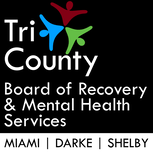"Gov. John Kasich visited a Westerville-area Kroger store today, where he announced a new partnership with the grocery chain around Ohio’s Start Talking! statewide youth drug prevention program. Kroger said it would support the Administration’s drug prevention efforts in the coming weeks by including an informational insert with all prescriptions, running in-store public service announcements, displaying Start Talking! signage and including parenting tips in employee communications. The Governor, who challenged other Ohio businesses to also get involved, was joined at the announcement by Senate President Keith Faber (R-Celina), OhioMHAS Director Tracy Plouck, Kroger Company CEO Rodney McMullen, Drug Free Action Alliance Executive Director Marcie Seidel and Worthington parent Paul Schoonover."
|
From OhioMHAS News Now, the email newsletter from the Ohio Department of Mental Health and Addiction Services:
"Gov. John Kasich visited a Westerville-area Kroger store today, where he announced a new partnership with the grocery chain around Ohio’s Start Talking! statewide youth drug prevention program. Kroger said it would support the Administration’s drug prevention efforts in the coming weeks by including an informational insert with all prescriptions, running in-store public service announcements, displaying Start Talking! signage and including parenting tips in employee communications. The Governor, who challenged other Ohio businesses to also get involved, was joined at the announcement by Senate President Keith Faber (R-Celina), OhioMHAS Director Tracy Plouck, Kroger Company CEO Rodney McMullen, Drug Free Action Alliance Executive Director Marcie Seidel and Worthington parent Paul Schoonover."  (Left to right) Kim Piper, Piqua City Schools Director of Student Services; Jodi Long, Tri-County Board of Recovery and Mental Health Services Director of Clinical Services and Evaluation; Bruce Jamison, Piqua Chief of Police; Rick Hanes, Piqua City Schools Superintendent. The panel taped a segment to air on Piqua TV5. (Left to right) Kim Piper, Piqua City Schools Director of Student Services; Jodi Long, Tri-County Board of Recovery and Mental Health Services Director of Clinical Services and Evaluation; Bruce Jamison, Piqua Chief of Police; Rick Hanes, Piqua City Schools Superintendent. The panel taped a segment to air on Piqua TV5. Piqua City Schools and project partners were notified of a $35,000 grant awarded April 1 by the Office of Ohio First Lady Karen W. Kasich, in partnership with the Governor’s Office of Faith-Based Initiatives and the Departments of Aging, Job and Family Services, and Mental Health and Addiction Services. Piqua school officials and other grant partners recorded a video roundtable April 4 to discuss the program, titled "Building Resilient Youth in Piqua City Schools." The video will air on Piqua TV5 and will be available through the Piqua school website. The grant was written by the Tri-County Board of Recovery and Mental Health Services on behalf of the school district. The school will contract with Miami County Recovery Council to provide a prevention specialist to deliver Botvin LifeSkills curriculum to all fifth and sixth grade students in the Piqua schools during the 2014-15 school year. Also supporting the grant is the Piqua Juvenile Education Fund, and the Piqua Police Department. Piqua Police Chief Bruce Jamison is the uncompensated Executive Director of the PJEF. Resiliency is a term used in behavioral health and prevention to describe a broad set of skills, behaviors, attitudes and information that enables individuals to make healthy choices even when faced with pressures from media, marketers, peers and others to use harmful substances such as tobacco, alcohol and illicit drugs. "Resiliency goes beyond 'just say no' kinds of programming," said Brad Reed, the Tri-County Board's Director of Community Resource Development and lead author of the grant. "Resiliency explores why to say no, and how to say no, and how to be confident and assertive about saying no. Developing resiliency also develops positive behaviors and attitudes for social interaction. It's a skill set that can be used for a lifetime." According to Jodi Long, the Tri-County Board's Director of Clinical Services and Evaluation, the LifeSkills program is an ideal fit. "After talking to Bruce Jamison and Kim Piper from the school district and hearing their ideas about moving toward evidence-based practice in school prevention activities, this came along at exactly the right time," she said. Long was listening to a teleconference about Governor John Kasich's "Start Talking" programs for youth drug prevention, part of which was the grant funding opportunity, when she heard Jamison's voice on the conference call asking a question. Long's follow-up call to Jamison started the conversation with the schools and the decision to pursue the grant. Chief Jamison envisions a consistent message throughout the students' school, home and online environments. "We need something that incorporates parents - there are a lot of parents that really care and want to deliver the right message to their children and just don't know how," Jamison said during the TV taping. "We recognize there are partners in the prevention programs within the schools. Wouldn't it be cool if there was something that could go right into the curriculum... more of an integrated message that is a lot of places - in the classroom, in the home, in the media, on FaceBook, on Twitter - wherever they are getting their messages, what if we could have the same right message all those places? And all of a sudden this initiative came out of the state called "Start Talking" ... and it was everything that we've been working towards, including a funding mechanism." Long said that from her meeting with the PJEF, they had all the pieces to "begin putting together what was Bruce's dream - to implement evidence-based practice prevention services in place of D.A.R.E." Long explained that "evidence-based practices" are programs that are supported by research to have proven outcomes, "that they change the choices our youth make around drugs, alcohol, violence and other social issues." Superintendent Hanes explained that the "D.A.R.E. program was a phenomenal program that was serving students well, but as we continue to move, things change. What [Chief Jamison and I] talked about was how to transition a program. What excites me ... is that this does provide a mechanism for us to be able to shift gears for better meeting the needs of students today. We were working from a curriculum for D.A.R.E. that was quite old, and it was time to revamp and revitalize." The eight Botvin LifeSkills modules in the middle school curriculum will be embedded into the Piqua schools "Specials" rotation. Kim Piper explained that the Specials are subjects such as Physical Education, Art, Music, "so this will be added into that rotation." She added that school officials "are excited about the parent component and the teacher component." Part of the grant-funded activities is to train teachers and counselors in the LifeSkills curriculum. Jamison said the grant-funded program "lays some groundwork - to me it's just the basis for a community-wide approach." Jamison said, "We have a bunch of drug abuse in Piqua. It's one of our biggest problems. It's not something we can arrest our way out of. It's probably not even something we can treat ourselves out of. What if we could do some social norming that made the whole community look at some of these issues differently?" Jamison added that "this lays the groundwork to begin bringing in some faith-based initiatives, to expand to other grade levels, and we could look at any neat ideas anybody might have." He emphasized that a systematic approach is needed so that different groups aren't duplicating efforts. Hanes said the $35,000 grant provides a "catalyst for all of us to start working together. We've been strong partners with the Police Department. We're looking forward to bringing the Tri-County Board into working more with us and becoming even more of a partner in offering good programming for our students. That's what this is all about." January 8, 2014, Ohio Governor John Kasich launched a multi-faceted campaign to prevent prescription and opioid drug abuse among Ohio’s children. Adolescents largely credit parents for the decision not to use illegal substances. Teachers, coaches and other authority figures can have a similar influence on youth and their decision-making. The Start Talking! Campaign gives parents, guardians, educators and community leaders the tools to start the conversation with Ohio’s youth about the importance of living healthy, drug-free lives.
The Tri-County Board of Recovery and Mental Health Services will assist with facilitating these conversations. Schools in Darke, Miami and Shelby Counties have been contacted about scheduling Start Talking! meetings. The Tri-County Board will: - Facilitate evening meetings with parents of middle school and high school students. - Provide a panel of local professionals to answer parents’ questions about opiate abuse, prevention and treatment. - Distribute literature highlighting local resources and additional information. - Present the short video “Parents360 Rx” with facilitated conversations afterward. - Discuss ways parents can continue the campaign by hosting their own Parents360 Rx meetings. Host sites are asked to: - Schedule a date or dates that you could provide evening meeting space for 90 minutes - Send through your normal communication methods (email, take-home flier, One Call Now) notice of the meeting, when scheduled - Provide a screen and internet connection (we can provide laptop and LCD projector, if necessary) To arrange for a moderated conversation in your school or organization, email or call Brad Reed, Director of Community Resource Development, 937-335-7727, ext. 209. |
AuthorBrad Reed is Director of Community Resource Development at the Tri-County Board of Recovery and Mental Health Services. Archives
May 2023
Categories
All
|

 RSS Feed
RSS Feed
